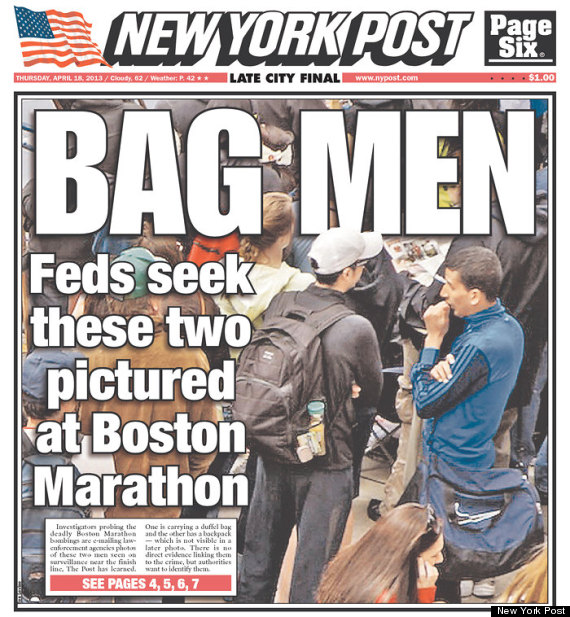Let’s start with the premise that some wars are justifiable. I’m with Jonathan Chait there. But he loses me very shortly thereafter in his piece from Tuesday:
The merits of intervening in Syria strike me as both a closer call and a lower-stakes matter than what we think of as “major wars.” The apparently forthcoming operation has much more modest ends than the intervention in Libya, which I supported and that succeeded in its aim. We will not be toppling a brutal regime or preventing an imminent massacre. The purpose of air strikes is to impose a cost on regimes that deploy chemical weapons against civilians. Attacking the Syrian regime won’t stop all future massacres of civilians, or even all chemical attacks on civilians, but it does strike, on balance, as better than doing nothing at all.
Essentially every line of this paragraph is inaccurate or incoherent. First, what, exactly, constitutes a “major war?” If a two-year-old civil war with a death toll exceeding 100,000 and displaced totals in the millions doesn’t count as one, then I’m not certain what it would take to persuade Chait of the war’s significance. (Like Mitt Romney’s conception of the upper class as households earning over $250,000 annually, it appears that Chait’s dataset of “major wars” is restricted to ones in which Americans die in sufficiently large numbers.)
I get what he’s trying to say: war may be devastating Syria, but an American intervention would pose little risk to the United States. To illustrate this point, he compares the proposed military action in Syria to that in Libya and concludes that the former actually represents the safer course of action.
This is, of course, absurd. Libya was led by Muammar Qaddafi, an increasingly isolated autocrat whose idiosyncrasies even his authoritarian Arab brothers despised, and they were only too happy to be rid of him. Virtually no one felt threatened, or was even particularly bothered, by what transpired in Libya: only a duped Russia (sign up for the no-fly zone, stay for regime change!) and a coterie of jittery Middle Eastern despots showed much concern. It was quite clear, in the end, that Qaddafi had no real leverage with anyone.
Contrast that with the situation in Syria today. Assad has the support of both Hezbollah and Iran. Oh, and Russia, which has already warned of the “catastrophic consequences” of an intervention in the Middle East. Meanwhile, Israel is standing ready to respond in case of retaliation in the event of an American-led strike in Syria. In short, it is really quite easy to imagine a scenario in which at least six nations (Syria, Lebanon, Russia, Iran, Israel, and the United States — and this doesn’t even include likely NATO partners such as the U.K.) are pulled into an increasingly intractable conflict. Syria is intricately woven into the political fabric of the Middle East in a way that Qaddafi’s Libya could only dream of being.
But Chait doesn’t stop there. He also insists, echoing a persistent journalistic theme that bears little resemblance to reality, that the Libya operation was a success. It is unclear whether he is referring to the prevention of a massacre in Benghazi or regime change itself as barometers of victory. In this failure, however, he is at least joined by the initial proponents of the Libya intervention, none of whom seemed to know the true objective either. In a preemptive rebuttal of his critics, he writes:
The argument for intervening in Libya was not that doing so would turn the country into a peaceful, Westernized democracy moving rapidly up the OECD rankings. It was that it would prevent an immediate, enormous massacre of civilians. Libya remains an ugly place; it would have been so regardless of whether NATO intervened. But the narrow, humanitarian goal that drove the U.S. to act was unambiguously accomplished without the larger dangers of mission creep that foes warned against.
Again, this is sheer madness. The “narrow, humanitarian goal” to which Libya intervention advocates staked their early justifications was to prevent a massacre in Benghazi by establishing a no-fly zone, and not regime change. Of course, we never had any definitive proof that such a massacre would take place, only the histrionics of a famously melodramatic leader. So was the intervention a success? Only if measured against the presumed alternative of a guaranteed massacre, an event that — by definition — we can never know for certain would have happened in the first place. The goal was far from “unambiguously accomplished.”
What really gets me, though, is this part: “…without the larger dangers of mission creep that foes warned against.” This is a truly astounding declaration. Here is a White House statement from March 22, 2011:
Ben Rhodes, a deputy national security adviser, issued a statement acknowledging that President Obama would like to see a democratic government in Libya, but explained that the aim of the U.S. military’s intervention there is not to enact regime change.
“We’re clarifying, as we’ve said repeatedly, that the effort of our military operation is not regime change, that as we actually say in this readout, it’s the Libyan people who are going to make their determinations about the future,” Rhodes said. “We support their aspirations, their democratic aspirations, and have stated that Gadhafi should go because he’s lost their confidence.”
This “narrow, humanitarian” NATO campaign to prevent a massacre eventually lasted seven months, included nearly 8,000 bombs and missiles, and played a decisive role in the rebels’ eventual capture of Qaddafi — long after he possessed any capacity to massacre anyone.
And yet even this incongruence is hardly the worst aspect of Chait’s argument. That prize is awarded to this sentence: “Libya remains an ugly place; it would have been so regardless of whether NATO intervened.”
Exactly. That’s just the point.
And so here we are again, pondering a supposedly limited engagement in Syria. Once again, the White House has explicitly denied that the goal of the (decreasingly hypothetical) intervention in Syria would be regime change. Once again, the objective is muddy: murkier, even, than the Libya strikes — which were at least superficially described, at the outset, as a response to an impending massacre. In Syria, the massacre has already taken place, and Obama has seemingly settled on the phrase “strong signal” (against the use of chemical weapons) as ample justification for a potential military mission.
And, once again, Syria will remain an ugly place with or without external intervention.
Chait concludes thusly:
But I continue to be amazed that some of my younger liberal friends find it so easy to dismiss any weighing of pros and cons by venturing arguments structurally identical to ones that, in a domestic context, they recognize as absurd.
I, in turn, continue to be amazed that Jonathan Chait finds war so casually justifiable. In the first quote I excerpted in this post, he wrote: “Attacking the Syrian regime won’t stop all future massacres of civilians, or even all chemical attacks on civilians, but it does strike, on balance, as better than doing nothing at all.”
That’s right: an intervention strikes him as better than doing nothing. That’s only slightly worse than going to war to send a “strong signal.” And yet, “doing nothing at all” isn’t even an option on the table. (For one, the U.S. has already promised to supply the rebels with arms, even if that vow has not necessarily been fulfilled yet.)
Indeed, this is the principal victory that the national security hawks have wrested from their dovish foes in the American political sphere: the idea that ever deciding not to intervene somewhere is a form of cowardice and isolationism. It’s why Rand Paul is consistently portrayed as a hermetic isolationist for the sole crime of opposing thoughtless military adventurism. (He’s rightly portrayed as a “wacko bird” for many other things, however.) And it’s why the decision to go to war is consistently portrayed as a garden-variety policy decision, like raising taxes or modifying vehicle emissions standards.
But it’s not. John Adams once said that “great is the guilt of an unnecessary war.” After a string of them — initiated via flawed reasoning and later feted for their imaginary victories — it appears that war remorse, like John Adams, is history.
















